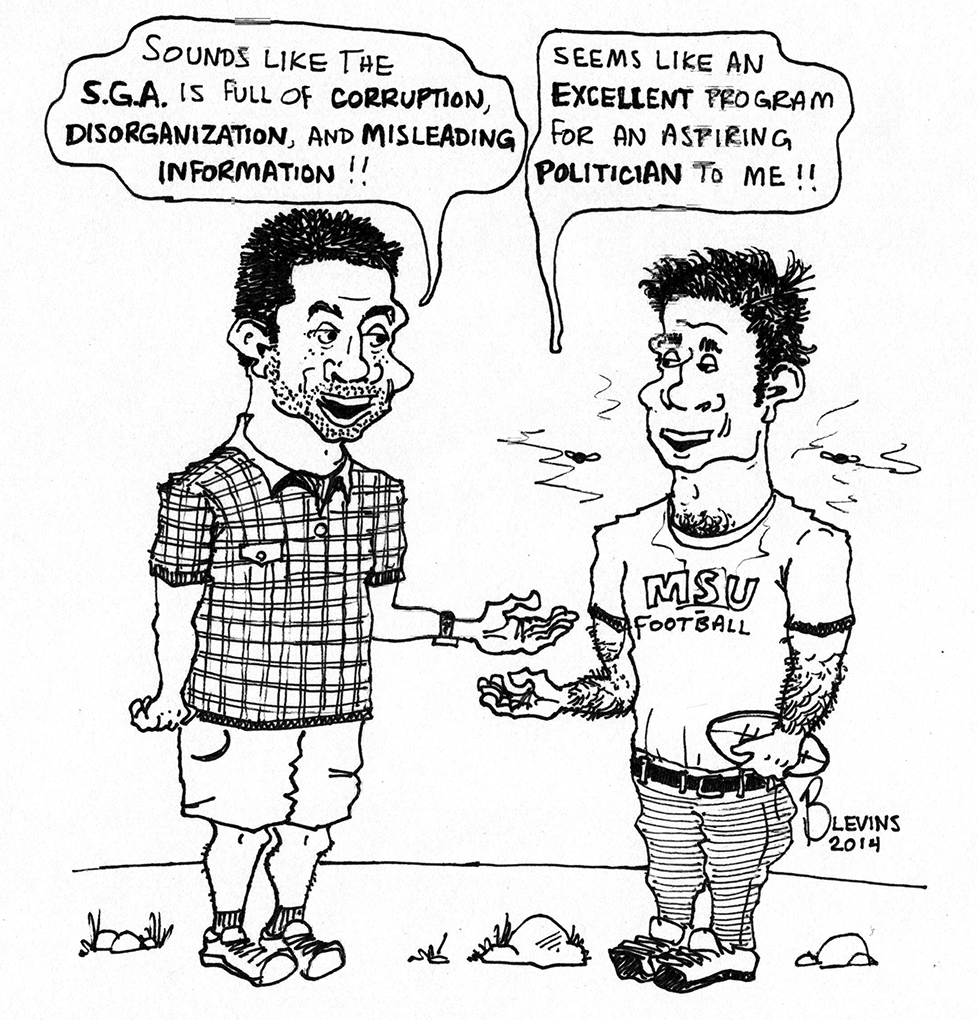 OUR VIEW: Anonymous complaints and letters should not be taken seriously. Anyone willing to accuse another person of a misdeed should have the gumption to do it on the record or real change cannot be made.
OUR VIEW: Anonymous complaints and letters should not be taken seriously. Anyone willing to accuse another person of a misdeed should have the gumption to do it on the record or real change cannot be made.
According to the Student Government president, the investigation into the alleged violation of campaign procedures was essentially thrown out because two anonymous letters do not substantiate enough evidence to modify the results of the election. We agree.
The Sixth Amendment to the Constitution says the accused shall “be informed of the nature and cause of the accusation,” and “confronted with the witnesses against him.” That right extends to the accused even in situations such as last week’s investigation.
Earlier this fall, an anonymous letter was sent to the university president and it resulted in the interim dean of the College of Fine Arts stepping down from her position, but the anonymity of the accuser prevents any real progress from being made.
If the accuser identified him or herself, an understanding and apology could have been made instead of creating confusion and mistrust within a department.
Perhaps anonymous accusers feel revealing their identity could compromise their position within an organization, but if the ultimate goal is to make a positive change, their voice needs an identity.











